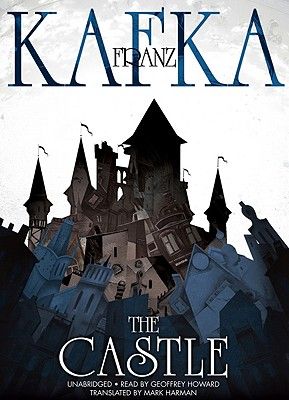As with much of his work, the novel works in different levels of meaning. If you don´t dig any deeper than the text offers, you might find yourself reading a tale on bureaucracy and alienation but if you dig a little more and gain references, you will find out much more about it. Read on to find out which are the hidden clues that will take you to a fuller understanding.
Unfinished Work
Unlike The Metamorphosis, The Castle was not finished by Kafka during his lifetime. He communicates with his lifelong friend Max Brod first to tell him about the books ending and then to tell him that he no longer wants to finish it and will never return to it while he lives. Before dying, he instructed his great friend to burn all his unfinished work, but luckily for us, he disobeyed and published all he could. The manuscript for The Castle that Kafka had left behind was literally left mid-sentence. Max Brod made a huge work of editing and also finished the book with what his friend had told him he was going to do.
The first version ever to be published was in 1926 and it didn´t sell even the 1,500 copies that were printed. Max Brod, in the meantime, donated the original manuscripts to the University of Oxford where they remained at the library. While heavy editing the text, Brod placed many religious references and made his own interpretation about what Franz Kafka was intending to say with it. Because of these discrepancies, there are currently many different versions of this book. If you ask me, the best one is Mark Harman´s translation. I mean, I can read German and also English, so I have the original volume with the untouched manuscripts and have read Harman´s take on it and I think it is the best. Given the chance, you should look for the two-volume set by Malcolm Pasley in which you get the original and all Brod´s work in separate.
Emotional Depth
The main character is called only K and arrives to a village by himself. There is a sense of desolation and loneliness in his words that is just majestic. Kafka started the book when he arrived to the Splindermühle resort in the mountains of what now is the Czech Republic. The first chapters of the written manuscript and the place where he had gotten at the time offer an amazing resemblance. If you do the test and after or while reading it, google the place, you will see it is amazingly alike. Also, the sense of emotional coldness is very close to the snow-filled landscapes and general tone of the book. The relationship with the female character, Frieda, his intense jealousy and her abandonment leading to the arms of his former assistant Jeremiah towards the end can also be thought of a deceive towards life in general after his tuberculosis diagnosis.

William Burrows (no, not the author, the critic) for The Guardian stated that the works of The Castle cannot be reduced to the idea of a fight against bureaucracy, but it is the desperate search for companionship, escaping solitude and fighting pain. The critic goes on saying that reducing The Castle to just a view on bureaucracy is making Kafka´s work trivial and reducing it to a social criticism that is shallow. While it is true that there is a lot written about how villagers contradict themselves, the inability to reach the castle and the veil of mystery surrounding it, it is a crucial thing to remember that Kafka himself was a man of law and bureaucracy was nothing he feared or wasn´t used to. Dedicating a novel to that topic in that moment of his life seems to as a strange idea.
The Castle should not be considered just a Kafka novel, because the author´s intention was not to publish it at all and in fact was left unfinished. He told his friend to burn it, so it should have never seen our eyes. I could ramble on about the publishing business and how they are profane to Kafka´s memory, but I enjoyed reading it too, it would be a shame to have those words burned.

 Kafka Garden is my humble homage to the man I think is the greatest writer that has ever lived. We can discuss about style and ideas, but no other writer has ever made me feel what he did. I am a German citizen and I am lucky that I can read his work in the language it was created.
Kafka Garden is my humble homage to the man I think is the greatest writer that has ever lived. We can discuss about style and ideas, but no other writer has ever made me feel what he did. I am a German citizen and I am lucky that I can read his work in the language it was created.

